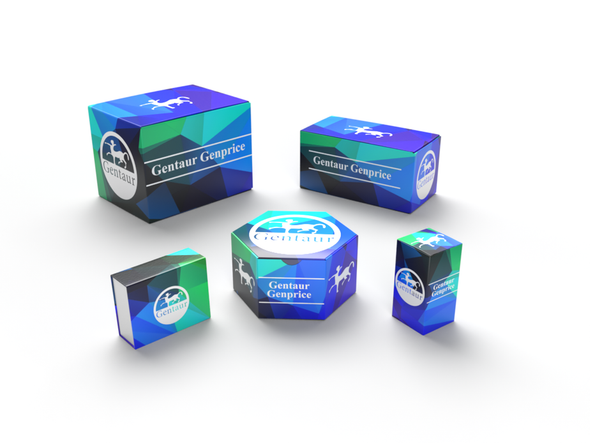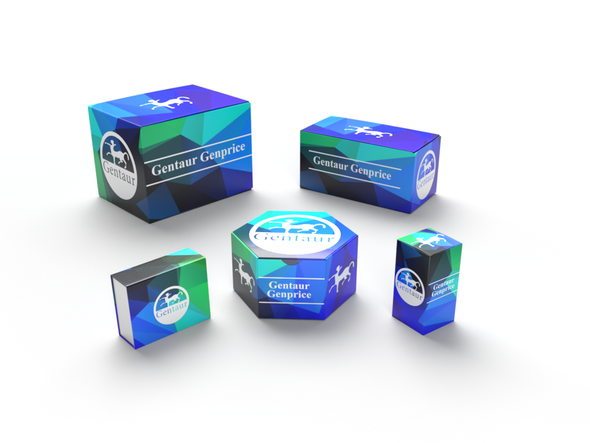Description
Myeloid Cell Marker Antibody [BM-1] | 33-256 | Gentaur UK, US & Europe Distribution
Host: Mouse
Reactivity: Human
Homology: N/A
Immunogen: Human peripheral blood mononuclear cells were used as the immunogen for this Myeloid cell marker antibody.
Research Area: Other
Tested Application: IHC, Flow, IF
Application: Flow Cytometry: 0.5-1 ug/million cells
IF: 1-2 ug/ml
IHC (FFPE) : 0.5-1 ug/ml for 30 minutes at RT (1)
Prediluted format : incubate for 30 min at RT (2)
The concentration stated for each application is a general starting point. Variations in protocols, secondaries and substrates may require the Myeloid cell marker antibody to be titered up or down for optimal performance.
1. No special pretreatment is required for staining of formalin/paraffin tissues.
2. The prediluted format is supplied in a dropper bottle and is optimized for use in IHC. After epitope retrieval step (if required) , drip mAb solution onto the tissue section and incubate at RT for 30 min.
Specificiy: N/A
Positive Control 1: N/A
Positive Control 2: N/A
Positive Control 3: N/A
Positive Control 4: N/A
Positive Control 5: N/A
Positive Control 6: N/A
Molecular Weight: N/A
Validation: N/A
Isoform: N/A
Purification: Protein G affinity chromatography
Clonality: Monoclonal
Clone: BM-1
Isotype: IgG1, kappa
Conjugate: Unconjugated
Physical State: Liquid
Buffer: PBS with 0.1 mg/ml BSA and 0.05% sodium azide
Concentration: 0.2 mg/mL
Storage Condition: Aliquot and Store at 2-8˚C. Avoid freez-thaw cycles.
Alternate Name: N/A
User Note: Optimal dilutions for each application to be determined by the researcher
BACKGROUND: This antibody recognizes a 183kDa protein with DNA-binding characteristics, which is identified as a myeloid cell specific antigen. Clone BM-1 antibody reacts with myeloid precursor cells and granulocytes in bone marrow. Its antigen appears to be restricted to M2 and M3 acute myelogenous leukemia (AML) subtypes. This type of marker is useful in the identification of different levels of cellular differentiation. BM-1 and BM-2 antibodies react with early precursor and mature forms of human myeloid cells. This mAb is useful in the identification of myelogenous leukemias, distinguishing granulocytic sarcomas from lymphoid malignancies and also in the study of differentiation and transformation of human myeloid cells. The biological function of the marker protein is not clear, although it has been proposed that it may play a role in cell differentiation.

![Myeloid Cell Marker Antibody [BM-1] Myeloid Cell Marker Antibody [BM-1]](https://cdn11.bigcommerce.com/s-1rdwiq712m/images/stencil/608x608/products/483532/489361/gentaur-genprice__26005.1661610467__29809.1661628092__75433.1661676199__77988.1661684280__64362.1661692443__02085.1662049603__45075.1662119302__91744.1662191540__21580.1662291419__17922.1663498728.png?c=1)

![Granulocyte Marker Antibody [BM-2] Granulocyte Marker Antibody [BM-2]](https://cdn11.bigcommerce.com/s-1rdwiq712m/images/stencil/590x590/products/483524/489353/gentaur-genprice__26005.1661610467__29809.1661628092__75433.1661676199__77988.1661684280__64362.1661692443__02085.1662049603__45075.1662119302__91744.1662191540__21580.1662291419__50967.1663498727.png?c=1)
![Plasma Cell Marker Antibody [LIV3G11] Plasma Cell Marker Antibody [LIV3G11]](https://cdn11.bigcommerce.com/s-1rdwiq712m/images/stencil/590x590/products/483536/489365/gentaur-genprice__26005.1661610467__29809.1661628092__75433.1661676199__77988.1661684280__64362.1661692443__02085.1662049603__45075.1662119302__91744.1662191540__21580.1662291419__47724.1663498729.png?c=1)


![Myeloid Cell Antibody [SPM298] Myeloid Cell Antibody [SPM298]](https://cdn11.bigcommerce.com/s-1rdwiq712m/images/stencil/590x590/products/484392/490221/gentaur-genprice__26005.1661610467__29809.1661628092__75433.1661676199__77988.1661684280__64362.1661692443__02085.1662049603__45075.1662119302__91744.1662191540__21580.1662291419__67625.1663498863.png?c=1)


